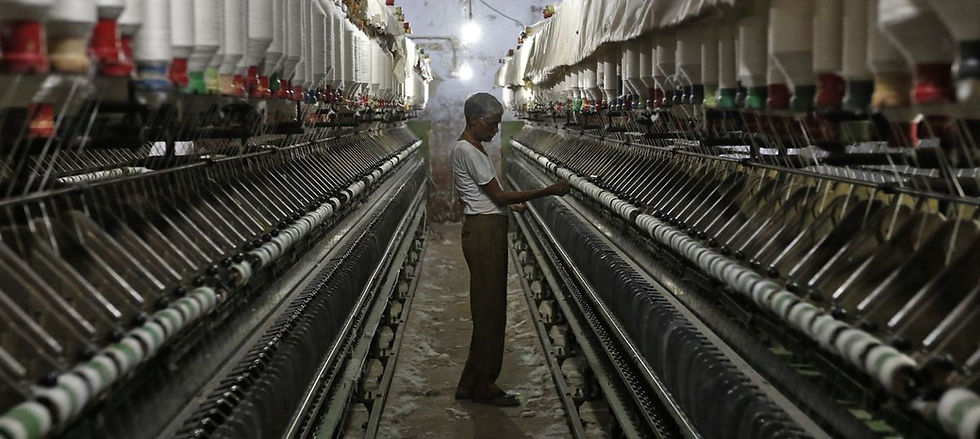MSME Incentives to Embrace Sustainability
- Disha Veera
- Sep 5, 2024
- 3 min read

Sustainability initiatives are often perceived as frivolous quests of large, funded companies. More than the cost, many companies view these as non-core, discretionary activities with no returns. But with more and more examples, we see this wall of discretion cracking.
Recently, a start-up involved in manufacturing of machine parts started implementing ESG controls and policies to be eligible for foreign tenders of potential clients. A chemicals company making under INR 100 crores, got an ESG assessment done as mandated by one of its largest customers. And this is only set to become more ubiquitous. With BRSR Core extending to value chain partners of top 250 listed companies, suppliers and distributors of these Indian companies are being called on to measure their sustainability impact. As a result, a rising number of MSMEs are adopting ESG frameworks and technologies in their system.
The government too is encouraging this shift. There are two green financing sub-schemes introduced by the Ministry of MSMEs under its ‘Raising and Accelerating MSME Performance (RAMP)’ scheme:
MSE-GIFT, short for MSE Green Investment and Financing for Transformation Scheme
MSE-SPICE, short for MSE Scheme for Promotion and Investment in Circular Economy
I. MSE-GIFT:

This scheme provides access to affordable financing options to invest in sustainable initiatives such as waste management, water efficiency, green buildings, clean transportation (EVs and hybrids), carbon capture technologies, and any other innovation with a high impact on controlling climate change.
An interest subvention of 2% per annum is allowed on loan sizes ranging from INR 10 lakhs to INR 2 crores. Further, a partial credit guarantee of 75% of the loan upto INR 2 crores has also been made available. All Udhyam registered micro and small enterprises are eligible for the program.
II. MSE-SPICE:

This scheme has been formulated to incentivize MSEs to adopt Circular Economy (CE) with a focus on Plastic, Rubber and Electronic Waste Management Rules. Simply put, it is meant to subsidize waste recycling and disposal plants which are crucial to comply with the new (and revised) waste management rules, that are more stringent than before.
The Credit-Linked Capital Subsidy under this scheme provides a subsidy of upto 25% on the cost of plant and machinery for brownfield projects upto a maximum of INR 12.50 lakhs. The investment may be towards CE technologies for plastics, electronic waste, municipal waste, lithium-ion batteries, solar panels, hazardous industrial waste, amongst others. All Udyam registered micro and small enterprises, who are complying with the existing Extended Producer Responsibility (EPR) are eligible for it.
Both these schemes are supported with an allocation of INR ~470 crores each from the Centre.
Further, as per an article by the Economic Times, the government is also in the process of introducing an INR 15,000 crores decarbonisation scheme for MSMEs which is expected to be launched in the early 2025. As part of the scheme, a dedicated body is expected to be set-up to oversee transition of MSMEs to green energy and formulate MSME-specific green policies. The government is also expected to set-up material recovery facilities and launch an e-marketplace to connect manufactures with waste collectors. This shall facilitate better waste management and price discovery in a market which is highly fragmented.

We are nearing the realisation that actual change will only be possible if the vast majority at the bottom of the pyramid is supported. MSMEs make up about 4-5% of India’s total greenhouse gas emissions and contribute to about 30% of the country's GDP. It is only reasonable that they are given a fair chance to contribute to our green mission.
For further assistance on sustainability assessments or the above government schemes, feel free to write to us at info@esgityadvisors.com.




Comments